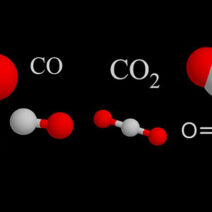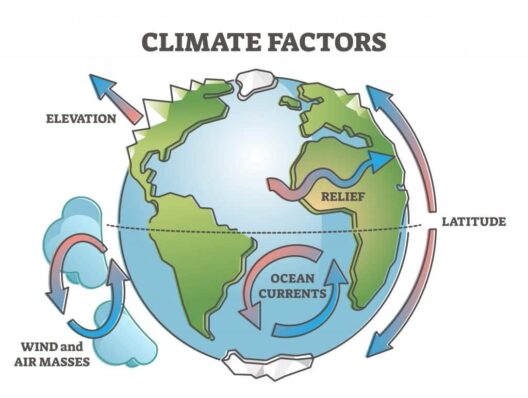Our planet is undergoing a relentless transformation, reflecting the profound impacts of climate change that permeate every facet of our lives. The science is indisputable: the average global temperature is rising, and the consequences are becoming increasingly visible. Deforestation, melting ice caps, and extreme weather events epitomize the urgency with which we must act. The aesthetic beauty of our natural world hangs in the balance, yet there lies an opportunity for individuals to effect change through the myriad choices they make daily.
Every decision, however inconsequential it may seem, contributes to a larger tapestry of impact influencing climate change. From the food we consume to the mode of transport we choose, each action reverberates beyond personal borders, affecting ecosystems and communities worldwide.
Understanding Climate Change
At its core, climate change is largely driven by anthropogenic activities, particularly the burning of fossil fuels, which releases greenhouse gases (GHGs) into the atmosphere. These gases trap heat, leading to the warming of the Earth. The resultant carbon cycle imbalance is a pivotal factor in understanding why every choice matters. The transition from fossil fuels to renewable energy sources, such as solar and wind, is not just a technological endeavor; it demands a societal mindset shift emphasizing sustainable living.
Food Choices and Their Impact
One of the most significant contributions to individual carbon footprints arises from food choices. Agriculture is responsible for roughly 24% of global emissions, with livestock production being particularly harmful. The decision to favor plant-based diets can markedly reduce one’s carbon footprint. Selecting locally sourced produce minimizes transportation emissions, fostering a sense of community and supporting local economies. Moreover, organic farming practices can sequester carbon in the soil, enhancing biodiversity and improving ecosystem health.
Therefore, practicing mindful consumption is paramount. Consideration for packaging is equally vital. The use of plastic encumbers the environment and fosters pollution. Opting for biodegradable or minimal packaging contributes to a circular economy, which is fundamental for sustainable development.
Energy Consumption
The energy choices we make at home and within our communities can either exacerbate or alleviate the climate crisis. The transition from traditional incandescent bulbs to energy-efficient LEDs, for instance, is a simple yet effective measure that significantly reduces energy consumption. Home appliances are often culprits of excess energy usage; thus, investing in Energy Star-rated appliances can yield substantial savings on utility bills while curtailing emissions.
In addition to individual choices, communal energy initiatives—like community solar projects—empower citizens to participate in the transition to renewable energy. Advocating for policies that encourage the development of green energy solutions is equally crucial. Every voice supporting these shifts contributes to systemic change that can mitigate climate change effectively.
Transportation Alternatives
Transportation remains one of the largest sources of GHG emissions globally. The choice of mode of transport has profound implications. Walking, biking, carpooling, or utilizing public transit can significantly reduce one’s carbon footprint. The rise of electric vehicles (EVs) presents a promising option, yet they must be powered by renewable energy sources to maximize their climate benefits. Advocating for infrastructure improvements, such as bike lanes and public transportation access, also reflects a conscious choice aimed at promoting sustainable methods of mobility.
Waste Management
Waste has a considerable impact on climate change, particularly regarding landfills, which emit methane—a potent GHG. Simple acts, such as practicing recycling and composting, can drastically reduce waste sent to landfills. Emphasizing the reduction of single-use items and prioritizing reusable products showcases a commitment to sustainability. Innovations in waste-to-energy technologies further illustrate that every choice, even when considering disposal, bears consequences for the environment.
Advocacy and Education
At the community and institutional levels, the ripple effect of informed choices can generate significant change. Advocating for climate-conscious policies, supporting local environmental initiatives, and influencing corporate practices can set powerful precedents. Encouraging educational initiatives that promote environmental literacy equips future generations with the knowledge and tools needed to address climate challenges. Knowledge is power; educating oneself and others can lead to widespread change as awareness increases.
Community Engagement
Grassroots movements often serve as catalysts for change, uniting individuals around common environmental goals. Participating in local clean-up events, tree-planting initiatives, or conservation projects fosters a sense of community investment in local ecosystems. These collective choices embody a commitment to safeguarding our environment, emphasizing that concerted efforts can potentially yield transformative results.
The Ethical Imperative
Ultimately, the ethical considerations tied to climate change highlight that every choice reflects our values. Choosing to prioritize sustainability over convenience aligns personal ethics with collective wellbeing. As stewards of the Earth, it is incumbent upon us to champion a sustainable future, recognizing that our daily decisions contribute significantly to a broader environmental narrative.
Conclusion
In conclusion, our warming world, beset by the myriad consequences of climate change, necessitates a shift in consciousness regarding personal choices. Every decision—from dietary preferences to energy consumption—plays a role in shaping our environmental reality. By recognizing the interconnectedness of our actions, we can collectively pave the way for a more sustainable future. It is imperative that we acknowledge: every choice matters.








